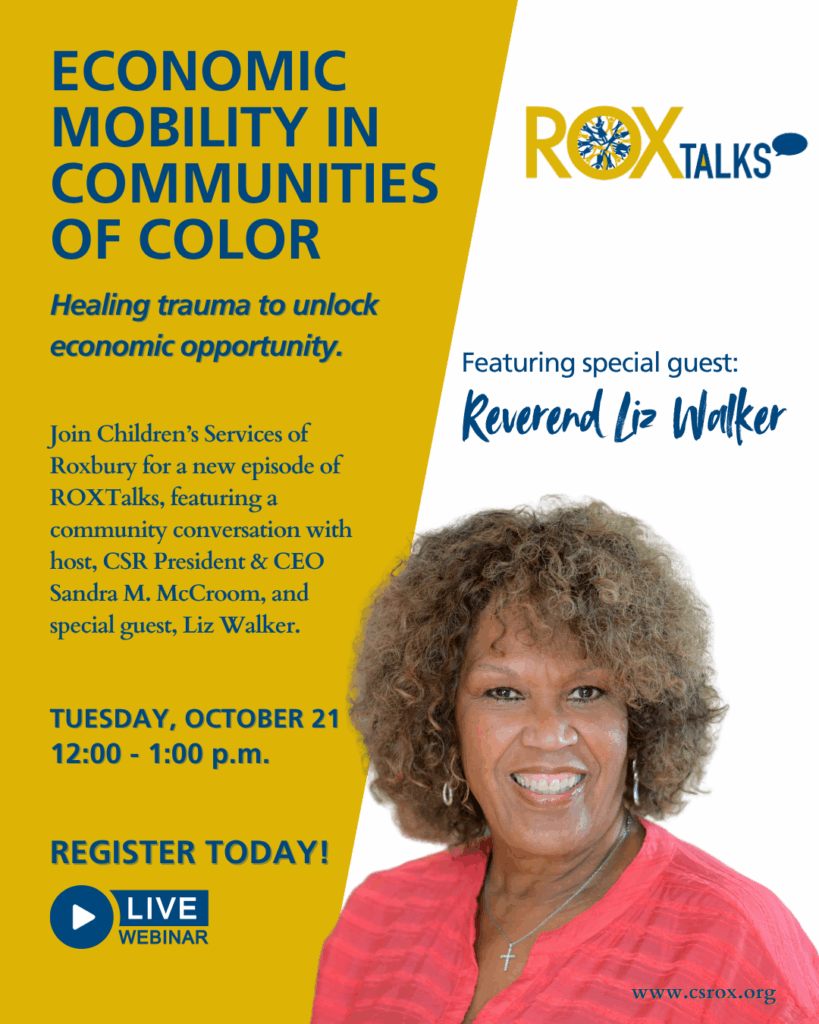By Sandra M. McCroom, Children’s Services of Roxbury President & CEO
Viewpoint Published Jun. 19, 2025, 6:00 a.m. on MassLive.Com
Juneteenth is a moment for celebration, and a time for reflection. On June 19, 1865 — two-and-a-half years after the Emancipation Proclamation — Union troops arrived in Galveston, Texas, to declare more than 250,000 enslaved people in the state free by executive decree. It underscored the moment in our country’s history when virtually every person gained the freedom granted in our Constitution. For over a century, the American narrative largely neglected that milestone.
Opal Lee, the grandmother of Juneteenth, worked tirelessly to lift this major event out of the shadows and called on our country to commemorate it. As the child of civil rights activists, I understand that perseverance. I was taught that continued action in the face of injustice is my responsibility, indeed everyone’s responsibility.
As America’s second Independence Day, Juneteenth should prompt each of us to recommit to our country’s declaration of unalienable rights to life, liberty and the pursuit of happiness for all. We should acknowledge slavery’s legacy of intergenerational trauma and poverty, which runs contrary to those rights and manifests itself in marginalized communities to this day, and we must work to reverse that legacy.
We need more — not fewer — programs and services that uplift those who continue to be oppressed. It is an undertaking that feels even more formidable now than in recent years, as federal funding cuts compound to entrench communities of color in the morass of broken families, hopelessness and untreated physical and mental health.
According to McLean Hospital, “About 25% of Black Americans in the U.S. seek mental health treatment, compared to 40% of white Americans. Unequal access to care is one major contributor to this disparity.” We cannot ignore the lack of access to culturally competent behavioral health services in communities of color, nor can we stand by idly and hope conditions will change for the better.
Like Opal Lee, we must persevere.
Children’s Services of Roxbury (CSR) — the organization I lead — is the Commonwealth’s only Black-specialized provider of behavioral health care, which has become increasingly vital for families enduring the many traumas that result from living with economic uncertainty and injustice. It is imperative for society to provide safe spaces where parents and children can access services designed to strengthen and heal. That is why we want the community to experience CSR as a front porch — a haven of comfort and fellowship, where people know they are welcome without judgement.
Anthropologists trace the origins of the front porch to Africa, according to researcher Robell Awake. First seen in the “shotgun houses” built in Louisiana to help house an influx of Haitian free people of color, front porches became places to gather, socialize and build connectivity in a community. As the New York Times wrote in 2018, “the front porch has been a fixture in American life, and among African Americans it holds outsize cultural significance.”
At CSR, our Front Porch program provides free access to culturally attuned, trauma-informed care for families in crisis. Families facing homelessness, underemployment, domestic and community violence or other trauma find a welcoming place to turn for help. They are paired with a “family partner” who is trained in mental health care and how to use their lived experience to help others navigate systems that were not created with them in mind.
Services for underrepresented communities must be family-driven, strengths-based and individualized, so that parents can gain the tools to access critical resources and build the confidence to self-advocate. Only then will they and their children experience a better today that instills hope and determination for better tomorrows.
When faced with racism, injustice and community-need, my parents taught me to act with purpose. Nonprofit organizations like ours work to liberate families from grievous conditions and deliver peace of mind. As political polarization, fear and uncertainty seep deeper into our consciousness, we need more front porches and more support services for families and children of color, like our Western Massachusetts intensive foster care program, which provides specialized care to children to ensure the best possible outcomes.
Opal Lee and other civil rights leaders remind us that none of us is truly free until all of us are free. As we commemorate the 160th anniversary of Juneteenth, we honor their legacy. We owe it to them, and to our neighbors, friends and family who still live without true agency, to continue to act with purpose — so that freedom is felt, happiness is possible, and the promise that we are all created equal is fully realized.


